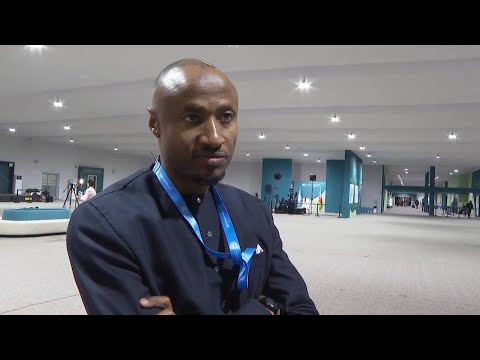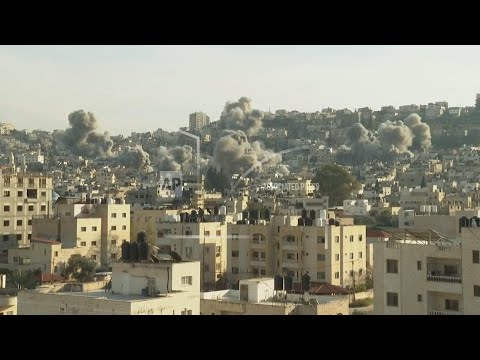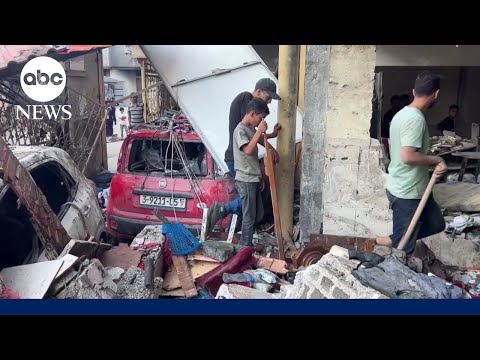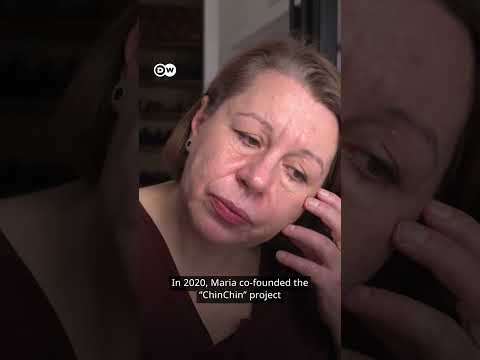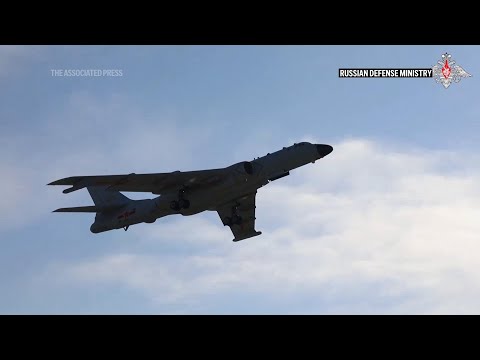(24 Nov 2024)
RESTRICTION SUMMARY:
ASSOCIATED PRESS
Baku, Azerbaijan – 24 November 2024
1. Wide of hallway outside plenary hall
2. Hussein Alfa Nova, advisor to the African Group Chair, talking with other negotiator
3. SOUNDBITE (English) Hussein Alfa Nafo, advisor to the African Group Chair:
"We didn’t put that number down. That number is a starting place. It was very important for the African Group to have that number — 300 billion by 2035 — as a floor and not a ceiling. And we’ve been able very late in the negotiation to add the term ‘at least’ to ensure that this can only be a starting base, a minimum due to the vast needs of developing countries.”
4. Wide of people walking outside plenary hall
5. SOUNDBITE (English) Hussein Alfa Nafo, advisor to the African Group Chair:
"It was very bleak not even two hours ago. And I think we were able to come together and have an outcome which is progress and which gives us some encouragement for the next few years in a very, very difficult geopolitical situation."
6. Wide of people walking outside plenary hall
7. SOUNDBITE (English) Teresa Anderson, global lead on climate justice for ActionAid International:
"Many developing countries are really unhappy with this text. They feel that it doesn’t provide anything like the finance they need. It puts the onus on loans, on private finance to fill the gap, and it also spreads the burden onto the Global South. So it’s nothing like what developing countries came here for and yet the presidency did gavel it through without checking to see if anyone objected."
8. Wide of Harjeet Singh being interviewed
9. SOUNDBITE (English) Harjeet Singh, global engagement director for the Fossil Fuel Non-Proliferation Treaty Initiative.:
"We find it deeply disappointing because the amount that has been committed is extremely low. It’s just $300 billion, and that, too, by 2035, which is woefully inadequate and really very far away. It lets developed countries off the hook."
10. Wide of people walking out of plenary hall
11. SOUNDBITE (English) David Waskow, director of Director of International Climate Initiative for World Resources Institute:
"What we need to do now is to really continue to move forward, find additional sources, things like international taxes, perhaps, other ways of really generating the kinds of resources that developing countries are going to need. So this is just the starting point. It can’t be the ending point.”
12. Various of people outside plenary hall
STORYLINE:
United Nations climate talks adopted a deal to inject at least $300 billion annually in humanity’s fight against climate change, aimed at helping developing nations cope with the ravages of global warming in tense negotiations.
The $300 billion will go to developing countries that need the cash to wean themselves off the coal, oil and gas that causes the globe to overheat, adapt to future warming and pay for the damage caused by climate change’s extreme weather.
It’s not near the full amount of $1.3 trillion that developing countries were asking for, but it’s three times a deal of $100 billion a year from 2009 that is expiring.
Some delegations said this deal is headed in the right direction, with hopes that more money flows in the future.
Hussein Alfa Nafo, advisor to the African Group Chair, said $300 billion is “a floor and not a ceiling” and it gives the climate-vulnerable countries “some encouragement for the next few years in a very, very difficult geopolitical situation”.
COP29 President Mukhtar Babayev gaveled the deal into acceptance before any nation had a chance to speak.
Find out more about AP Archive: http://www.aparchive.com/HowWeWork
Twitter: https://twitter.com/AP_Archive
Facebook: https://www.facebook.com/APArchives
Instagram: https://www.instagram.com/APNews/
You can license this story through AP Archive: http://www.aparchive.com/metadata/youtube/ff7e1a8caf5e49c1bb575fded1758cd4
Author: AP Archive
Go to Source
News post in November 29, 2024, 3:04 am.
Visit Our Sponsor’s:
News Post In – News

